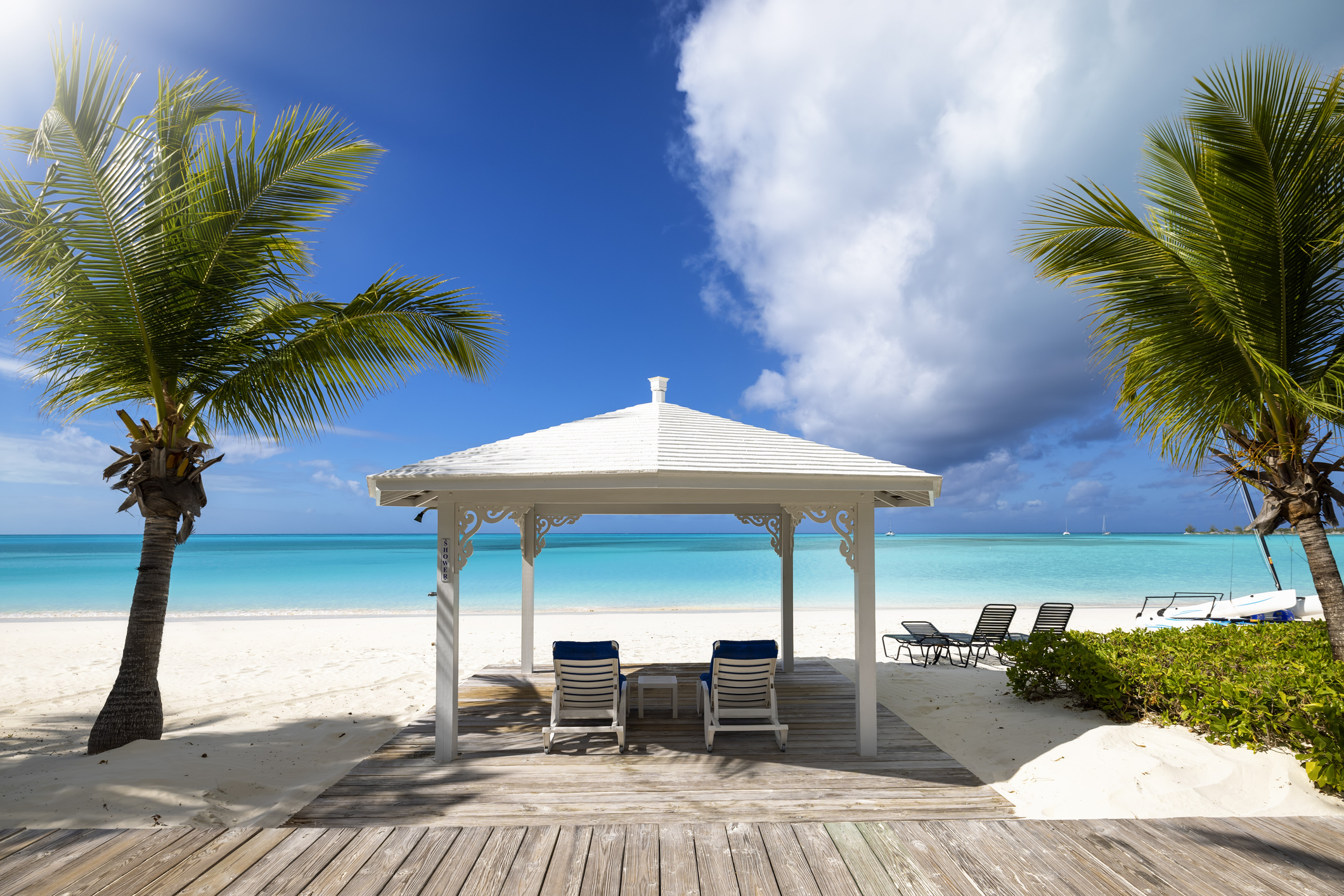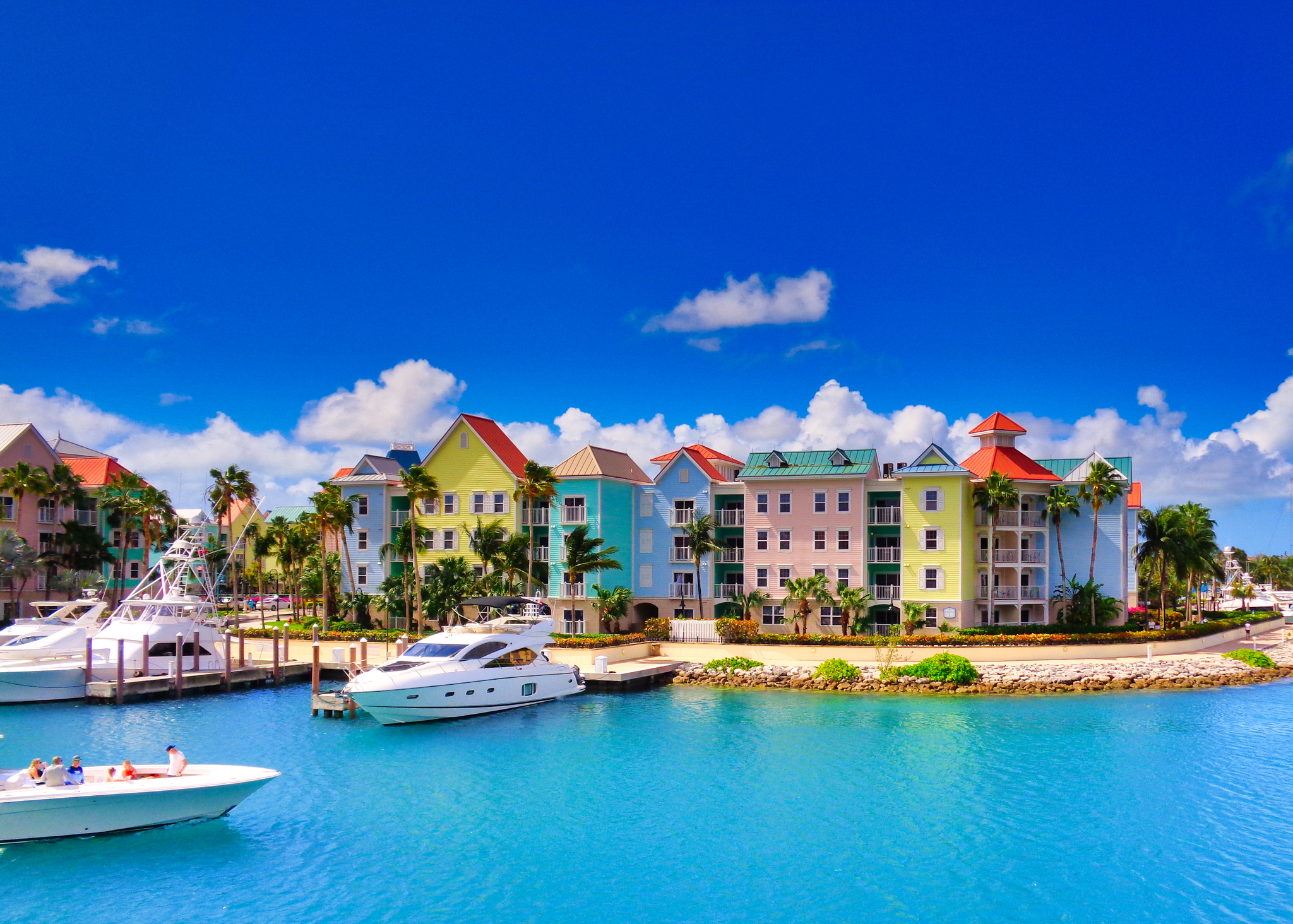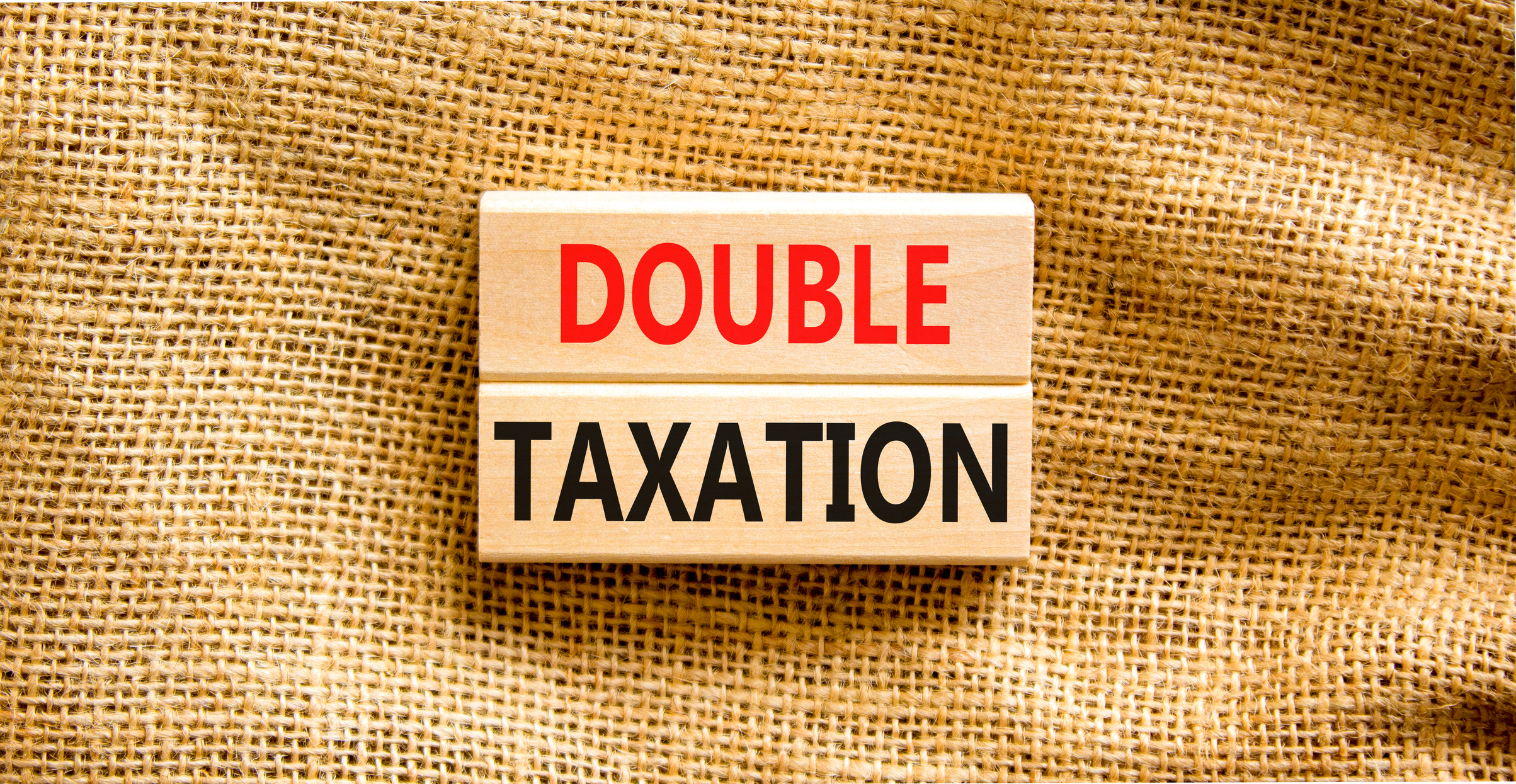Retire in the Bahamas With These Three Tax Benefits
Retirement in the Bahamas may be worth considering for high-net-worth individuals who hate paying taxes on income and capital gains.


Profit and prosper with the best of Kiplinger's advice on investing, taxes, retirement, personal finance and much more. Delivered daily. Enter your email in the box and click Sign Me Up.
You are now subscribed
Your newsletter sign-up was successful
Want to add more newsletters?

Delivered daily
Kiplinger Today
Profit and prosper with the best of Kiplinger's advice on investing, taxes, retirement, personal finance and much more delivered daily. Smart money moves start here.

Sent five days a week
Kiplinger A Step Ahead
Get practical help to make better financial decisions in your everyday life, from spending to savings on top deals.

Delivered daily
Kiplinger Closing Bell
Get today's biggest financial and investing headlines delivered to your inbox every day the U.S. stock market is open.

Sent twice a week
Kiplinger Adviser Intel
Financial pros across the country share best practices and fresh tactics to preserve and grow your wealth.

Delivered weekly
Kiplinger Tax Tips
Trim your federal and state tax bills with practical tax-planning and tax-cutting strategies.

Sent twice a week
Kiplinger Retirement Tips
Your twice-a-week guide to planning and enjoying a financially secure and richly rewarding retirement

Sent bimonthly.
Kiplinger Adviser Angle
Insights for advisers, wealth managers and other financial professionals.

Sent twice a week
Kiplinger Investing Weekly
Your twice-a-week roundup of promising stocks, funds, companies and industries you should consider, ones you should avoid, and why.

Sent weekly for six weeks
Kiplinger Invest for Retirement
Your step-by-step six-part series on how to invest for retirement, from devising a successful strategy to exactly which investments to choose.
Stunning beaches, warmer climates, and a relaxed lifestyle are just a few reasons you might travel to the Bahamas.
But have you ever considered making your summer destination a daily reality?
According to the World Migration Report, the Bahamas has around 64,000 international migrants, which is relatively high considering its small population size. And with all the income perks that come with the island nation, it’s no wonder.
The Bahamas has one of the highest GDP per capita in the Caribbean. Combined with tax benefits like no capital gains or inheritance taxes, high-net-worth individuals may substantially build their nest eggs and pass on more wealth to their children.
From just $107.88 $24.99 for Kiplinger Personal Finance
Become a smarter, better informed investor. Subscribe from just $107.88 $24.99, plus get up to 4 Special Issues

Sign up for Kiplinger’s Free Newsletters
Profit and prosper with the best of expert advice on investing, taxes, retirement, personal finance and more - straight to your e-mail.
Profit and prosper with the best of expert advice - straight to your e-mail.
But at the same time, you may need to prepare for added costs like stamp fees, import duties, and value-added tax, which might hike your daily living expenses.
Sound interesting? Well, buckle your seatbelts and prepare for takeoff for three tax benefits that might make you want to retire in the Bahamas.
Retiring in the Bahamas: Is it a good idea?
There are several steps for U.S. citizens to retire in the Bahamas. Below is a suggested list:
- First, you’ll need to apply for and obtain a single-entry visa. Typically, these aren’t considered difficult to obtain.
- Once you’ve had three successful trips to the Bahamas with single-entry visas, you can apply for a multiple-entry visa, which will allow you to stay for a period longer than 90 days.
But things get pricey if you’re looking to establish a permanent residency in the Bahamas as a U.S. retiree.
One of the primary ways to establish permanent residence involves purchasing property worth at least $1,000,000 and holding it for at least ten years.
Because of this high bar of entry, you might want to maintain a Bahamas “residence permit” instead (or while you’re waiting for your ten years to finish). This annual permit has multiple initial requirements, including:
- Proof that you can support yourself, typically from your bank or a Certified Public Accountant (CPA).
- Medical, marriage, and birth certificates.
- Two character references.
Unlike the visa perks that come with Panama retirement tax benefits, retiring in the Bahamas does not get you special discounts on utility bills, transportation, or medicines. However, the Bahamas do offer something Panama doesn’t for U.S. retirees: No capital gains tax.
Bahamas capital gains tax
Bahamian citizens and resident aliens aren’t levied capital gains tax on assets like stock or real estate in the Bahamas.
This can be good news for U.S. investors who pay a federal tax between 10% and 37% on capital gains plus state taxes.
Although you’ll still be subject to federal taxes in the Bahamas, you may not have to pay state taxes on capital gains.
This is particularly true if you sell a non-U.S. asset and the state you’re leaving uses the following factors when determining your resident tax status:
- Time spent within state lines.
- Property ownership, voter registration, or a driver’s license.
- Mailing address or family and business ties in the state.
But it’s important to note that each state determines your “tax residency” a little differently. Be sure to check out your state’s Department of Revenue site for specific guidelines before you move.
Bahamas tax rate on retirement income
Another benefit of retiring in the Bahamas is that there is no tax on retirement income. Instead, residents are taxed on other types of transactions (more on those later).
Like with capital gains, you’ll likely still need to pay federal income tax rates as a U.S. retiree. But you may be able to exclude a certain amount of income with the Foreign Earned Income Exclusion (FEIE). Requirements include:
- Having foreign-earned income that was earned while in the Bahamas.
- Establishing your tax home in the Bahamas, and
- Living in the Bahamas for an entire calendar year, OR
- Being physically present in the Bahamas for at least 330 full days for 12 consecutive months.
If you’re eligible for the FEIE, you may exclude up to $130,000 of foreign-earned income in 2025. This includes any freelance work conducted on the side, commissions, or salary income.
However, it does not include Social Security or other retirement benefits like annuities or pensions.
For more information, check out Kiplinger’s report on Living Abroad Tax Breaks.

Retirement in the Bahamas could become a reality with no income, capital gains, or wealth taxes.
The Bahamas has no inheritance, estate, wealth, or gift taxes
As reported by Kiplinger, at least three countries for retirement have no inheritance tax.
But the Bahamas sweetens the pot by not levying estate, wealth, or gift taxes either. This can be major, considering popular retirement countries like France or Germany can levy some of the highest inheritance taxes in the world.
Plus, unlike one of the tax reasons not to retire in Portugal, there isn’t a “forced heirship” in the Bahamas. This means you have more control over who receives your assets and how much you’d like to give.
Of course, as with other taxes on this list, you may still have to pay U.S. federal tax on inheritances. And there may be some taxes you haven’t paid before when planning a move to the Bahamas.
What are the tax disadvantages of living in the Bahamas?
Although the Bahamas have very low taxes in a few areas, other tax rates might be relatively high compared to what you’re currently paying. For instance:
- Import Duties. Because the Bahamas are an island nation, it relies heavily on imported goods. Levied duties can range significantly, with the highest being 220%. Comparatively, mainland U.S. import duties can peak at 37.5% (though tariffs may impact prices in the future).
- Value Added Tax (VAT). Similar to a sales tax, Bahamian VAT is about 10% for most goods and services (exceptions may include food and medical services). Depending on where you live in the U.S., your state may have low sales taxes.
- Stamp duty. Akin to a real estate transfer tax, Bahamian properties purchased for over $100,000 levy a 10% duty on the buyer (2.5% on purchases lower than that amount). By comparison, states in the U.S. typically levy up to a 4% tax, per Property Shark.
Talking to a trusted tax professional for guidance on your financial situation may be the best way to understand how much you and your family could be affected by taxes in the Bahamas. But despite your specific circumstances, almost every U.S. retiree could be impacted by higher costs on certain goods and housing.
Bahamas cost of living
Unfortunately, the Bahamas have a higher national average cost of living than many places in the U.S. due to import fees and duties.
Online database Numbeo, as of June 2025, shows how the average retiree living in the Bahamas may pay higher costs:
- While 1-bedroom rent prices in the Bahamas can be up to 24% cheaper than in the U.S., 3-bedroom apartments are typically about 25% to 42% more expensive than their American counterparts.
- Clothing like jeans, dresses, or running shoes may be up to 26% more costly than in the U.S.
- Groceries are typically pricier in the Bahamas. For example, milk can cost 299.5% more than in the U.S., while tomatoes and eggs are 45% to 80% more expensive.
Overall, consumer prices in the Bahamas are 8.8% higher than the U.S. nationally. Be sure to talk to your tax advisor and explain your financial circumstances before relocating to the Bahamas.
Retire Abroad
Profit and prosper with the best of Kiplinger's advice on investing, taxes, retirement, personal finance and much more. Delivered daily. Enter your email in the box and click Sign Me Up.

Kate is a CPA with experience in audit and technology. As a Tax Writer at Kiplinger, Kate believes that tax and finance news should meet people where they are today, across cultural, educational, and disciplinary backgrounds.
-
 Quiz: Do You Know How to Avoid the "Medigap Trap?"
Quiz: Do You Know How to Avoid the "Medigap Trap?"Quiz Test your basic knowledge of the "Medigap Trap" in our quick quiz.
-
 5 Top Tax-Efficient Mutual Funds for Smarter Investing
5 Top Tax-Efficient Mutual Funds for Smarter InvestingMutual funds are many things, but "tax-friendly" usually isn't one of them. These are the exceptions.
-
 AI Sparks Existential Crisis for Software Stocks
AI Sparks Existential Crisis for Software StocksThe Kiplinger Letter Fears that SaaS subscription software could be rendered obsolete by artificial intelligence make investors jittery.
-
 How to Open Your Kid's $1,000 Trump Account
How to Open Your Kid's $1,000 Trump AccountTax Breaks Filing income taxes in 2026? You won't want to miss Form 4547 to claim a $1,000 Trump Account for your child.
-
 In Arkansas and Illinois, Groceries Just Got Cheaper, But Not By Much
In Arkansas and Illinois, Groceries Just Got Cheaper, But Not By MuchFood Prices Arkansas and Illinois are the most recent states to repeal sales tax on groceries. Will it really help shoppers with their food bills?
-
 7 Bad Tax Habits to Kick Right Now
7 Bad Tax Habits to Kick Right NowTax Tips Ditch these seven common habits to sidestep IRS red flags for a smoother, faster 2026 income tax filing.
-
 New Plan Could End Surprise Taxes on Social Security 'Back Pay'
New Plan Could End Surprise Taxes on Social Security 'Back Pay'Social Security Taxes on Social Security benefits are stirring debate again, as recent changes could affect how some retirees file their returns this tax season.
-
 Living in One State, Working in Another: How to Avoid a Tax Season Headache
Living in One State, Working in Another: How to Avoid a Tax Season HeadacheState Tax Living and working in two states can take a heavy toll on your paycheck and give you a headache come tax time. Here's what to know.
-
 10 Cheapest Places to Live in Colorado
10 Cheapest Places to Live in ColoradoProperty Tax Looking for a cozy cabin near the slopes? These Colorado counties combine reasonable house prices with the state's lowest property tax bills.
-
 New Gambling Tax Rule Impacts Super Bowl 2026 Bets
New Gambling Tax Rule Impacts Super Bowl 2026 BetsTaxable Income When Super Bowl LX hype fades, some fans may be surprised to learn that sports betting tax rules have shifted.
-
 Should You Do Your Own Taxes This Year or Hire a Pro?
Should You Do Your Own Taxes This Year or Hire a Pro?Taxes Doing your own taxes isn’t easy, and hiring a tax pro isn’t cheap. Here’s a guide to help you figure out whether to tackle the job on your own or hire a professional.